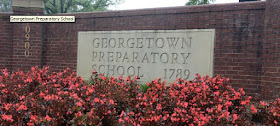The Power Elite by C. Wright Mills, 1956, Excerpts
The one deep experience that distinguishes the social rich from the merely rich and those below is their schooling, and with it, all the associations, the sense and sensibility, to which this educational routine leads throughout their lives. Each stage of this education is important to the formation of the upper-class man or woman; it is an educational sequence that is common to the upper classes in all the leading cities of the nation.
As a selection and training place of the upper classes, both old and new, the private school is a unifying influence, a force for the nationalization of the upper classes. The school – rather than the upper-class family – is the most important agency for transmitting the traditions of the upper social classes and regulating the admission of the new wealth and talent. It is the characterizing point in the upper-class experience. In the top fifteen or twenty such schools, one finds a prime organizing center of the national upon social classes. For in these private schools for adolescents, the religious and family and educational tasks of the upper social classes are fused, and in them the major tasks of upholding such standards as prevail in these classes are centered.
This is how white
privilege plays out in the Harvard admissions process
01 Oct 2019
After Students for Fair Admissions took Harvard to court for allegedly
discriminating against Asian Americans in a high-profile case last year, researchers
have examined some of the documents made publicly available from that case. The
research shines a light on the elusive selection of students who are either
related to staff and donors or on the dean’s interest list (usually referred to
as “legacy students”), or athletes. These students are accepted at a higher
rate than other applicants, even though they have worse grades. They also tend
to be overwhelmingly white: roughly a third of legacy students are African
American, Hispanic or Asian American. Being selected as a legacy student in
itself is an advantage: They are about 20 times more likely to be interviewed. The
researchers estimate that roughly three-quarters of white legacy students would
have been rejected if they had been treated the same as white non-legacy
students. Another interesting finding from the paper is that, while people may
think of Harvard as an academic institution first and foremost, a high
proportion of its students are athletes: 34%.
Power elite of
suburban Washington split over Kavanaugh allegations
17 Sep 2018
Christine Blasey Ford threw a
Supreme Court confirmation into turmoil with her decision to step forward with
sexual assault allegations against Brett Kavanaugh — but she also broke the
delicate social code of the affluent Maryland suburbs where they both grew up.
Their families have traveled for decades in the same prep school and
country-club circles, populated by Washington power players — including plenty
of lawyers, lobbyists and government officials whose shared goal is to avoid
public embarrassment. Ford attended the elite Holton-Arms School at the time
she alleges that Kavanaugh, who attended the equally elite Georgetown
Preparatory School, attacked her. Ford’s father, Ralph Blasey, was president of
the all-male Burning Tree Golf Club in Bethesda, where Kavanaugh’s father has
also been an active member.



No comments:
Post a Comment